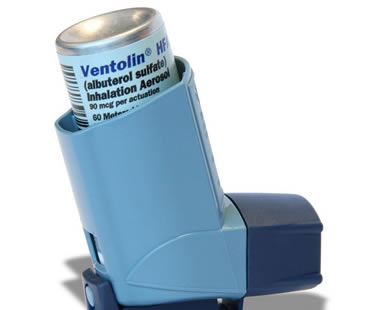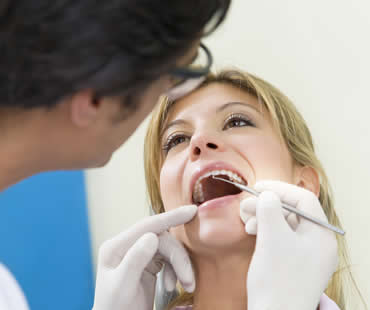
Sedation dentistry at our Ottawa dental office helps patients get the care they need for their teeth and can turn an otherwise stressful experience into a comfortable dental visit. Initially developed to focus on patients with special needs and those with acute dental phobias, it has progressed to be utilized by a wide range of patient groups.
Putting off dental care can affect all levels of your health. Even regular cleanings are shown to improve overall health. Untreated issues can lead to bad breath, gingivitis or periodontitis, bone loss, acute gum disease, or other serious issues.
Have you put off your dental care? Have you have been wondering if a faster, more comfortable and relaxed dental experience could benefit you? If so, see if some of the symptoms below are relatable to you.
- You miss regular check-ups and postpone care.
- You experience anxiety at the mere thought of a dental visit.
- It has been years since your last dental examination.
- The sights, sounds, and smells of a dental office cause you to feel uncomfortable and tense.
- You feel exhausted after a dental visit. Your muscles are tired and sore.
- You have an acute gag reflex and worry about vomiting during a dental procedure.
- You have difficulty getting numb during procedures.
- You have a physical condition such as Parkinson’s disease or cerebral palsy that causes you to make involuntary movements.
- You have TMJ (Temporomandibular Joint disorder) or are unable to keep your mouth open for long periods of time.
- Your jaw might be sore for days after a dental visit.
- You need extensive, painful or treatments over several visits, such as gum surgery, bone grafting or extractions.
- You have a fearful and anxious child who won’t follow instructions or sit still during a dental visit.
- You desire the most comfortable dental experience possible.
Does even one of these descriptions ring true for you? If so, talk to your dentist about sedation dentistry today! Don’t wait to enjoy the optimal level of oral care available to you.
Our dental office is located in Ottawa

About 20 million Americans have been diagnosed with asthma, a long-term lung disease that causes swelling and narrowing of the airways. The condition has been linked to oral health, with patients having increased risk for cavities, gum problems, and bad breath.
One of the main culprits negatively impacting an asthma patient’s oral health is the medication required to treat the condition. Some medicines, such as corticosteroids, decrease the flow of saliva. This leads to dry mouth, which in turn can increase cavities and bad breath. Dry mouth is worsened by the fact that many asthma patients breathe through their mouth. Inhaled steroids can also increase the risk of thrush, which is caused by an overgrowth of yeast in the mouth.
Here are some tips for keeping your mouth safe while still controlling your asthma:
- Make sure your dentist is aware of your condition, as well as all medications that you are taking.
- Rinse your mouth with water or a fluoride mouthwash after using your inhaler.
- Consider using a spacer device with your inhaler, which will spray the medication directly into your throat and avoid some of the direct risks to your mouth.
- Bring your inhaler with you to dentist appointments, both to show it to your dentist and to have your medication available in case you experience an asthma attack at the office.
- Ask your dentist if more frequent dental visits are recommended in your case.
- Inquire about adding fluoride supplements to your routine, especially in areas where the water is not fluoridated.
- Maintain good brushing and flossing habits.
Our dental office is located in Ottawa

Though sports drinks and energy drinks may provide refreshment after a workout or keep you awake to study, they can also do serious damage to your teeth. People often think of these drinks as healthy alternatives to soda, but that’s not the case. In fact, research shows that these beverages are up to 10 times worse for your oral health than cola.
The issue with sports and energy beverages comes from the high acidity. Manufacturers add acid to these drinks to balance the sugar. Even more than soft drinks, the acid in sports and energy beverages can erode tooth enamel, which increases the odds of cavities. Once teeth are weakened by decay, you become more susceptible to future problems down the road.
Another reason sports and energy drinks are problematic is the way people consume them. Because most individuals sip on them throughout the day, teeth are continuously exposed to the acid in the beverages. To minimize the risks to your oral health, consider these tips:
- Use a straw when you consume these beverages because it restricts the amount of liquid that gets on your teeth.
- Chew sugar-free gum, which promotes saliva production and rinses the acid from your teeth.
- Brush your teeth right after drinking sugary beverages to remove any residue and keep teeth healthy.
- Make H2O your first choice. Consuming lots of water and limiting intake of sodas, sports beverages, or energy drinks will help you stay hydrated and promote good oral health.
Family and general dentist in Ottawa

If you are about to undergo a dental therapy that necessitates the use of sedation dentistry, especially IV sedation, there are definitely some important questions you should ask your dentist prior to the procedure. Remembering to ask these questions can be difficult, especially if you are feeling anxious or ill at ease with regard to the treatment.
Use this guide to give you some of the most important questions you might not have thought of or remembered to ask:
- What type of sedation will I be receiving?
- What risk factors – even rare ones – are associated with this type of sedation?
- How long will the treatment take, and during how much of that time will I be sedated?
- How will the sedation be administered?
- Who will give me the sedation and monitor it during my treatment?
- What safety measures do you have in place in case of any medical emergency?
- What would happen in the case of a cardiac emergency or a seizure?
- Who is trained in CPR and other life-saving skills?
- What kind of preparations do I need to make prior to my treatment?
- Should someone accompany me to be present during the treatment?
- How soon following treatment will I feel awake and alert?
- May I drive myself home afterward?
- What kind of pain can I expect after my treatment?
- How will I manage my discomfort?
- What kind of aftercare does my particular treatment require?
- What signs should I look for that would lead me to contact you for a follow-up?
Talk to Ottawa sedation dentist Dr. Dzajkovski to get the answers to questions like these and any others you may have prior to receiving sedation dentistry.

As with any surgery, there are benefits and risks that come with getting dental implants. This procedure to replace missing teeth is becoming increasingly popular, so here are some things to know if you are considering this type of treatment.
What are the benefits?
- Appearance – implants blend in with your smile and look very natural.
- Comfort – they function and feel like natural teeth.
- Support – implants support your jaw and avoid a “caved in” look to your face, preserving your youthful appearance.
- Sensitivity – many patients have less tooth and gum sensitivity after getting implants.
- Adjacent teeth – neighboring teeth are not affected.
- Durability – implants are usually there for life, not needing surgical replacement. Even if the artificial tooth needs replacing, it can be done without surgery.
- Speech – dental implants allow you to speak clearly, as you would with your real teeth.
- TMJ – replacing missing teeth helps prevent jaw disorders
- Bone loss – titanium posts implanted into your jaw can help prevent bone loss and gum recession.
What are the risks?
- Infection – gums and tissue may become infected without proper oral hygiene. It’s important to follow all recovery and maintenance instructions carefully.
- Failed integration – sometimes implants do not integrate properly with the bone. If the implants do not fuse, they can be uncomfortable or loose. When this happens, implants must be removed and can be redone after the area has healed.
- Sinus problems – your sinuses can be affected when implants are placed in the very back of your jaw, sometimes requiring sinus augmentation surgery.
- Nerve or tissue damage – rarely, implants damage nerves or blood vessels. This can cause pain, tingling, swelling, or numbness. This typically is not a risk when a qualified dentist or oral surgeon performs your implant procedure.
Dental implants dentist in Ottawa

Brush and brush and brush, but you probably will not be able to get rid of all the plaque on your teeth. Even with regular brushing, some amount of plaque will build up on your teeth and turn into a hard substance called tartar. It simply can’t be removed without professional help.
What is tartar?
Tartar is a hard, yellow or brown deposit that forms on your teeth both above and below your gum line. Any food particles remaining in your mouth after eating will breed bacteria, which creates a thin film on your teeth called plaque. Any plaque that isn’t removed with brushing and flossing will harden to create tartar.
Is it harmful?
Tartar makes the surface of your teeth rough, which attracts food particles and therefore accelerates tartar formation. If you allow tartar to continue building up, your teeth will become discolored and your gums will be at risk. You will likely develop gingivitis, in which your gums become swollen and red. They will bleed easily and become painful, and eventually can lead to tooth loss. Advanced gum disease is even linked to higher risks of stroke, heart attack, and lung disease.
How is it removed?
Tartar is too hard and stubborn to be removed with regular brushing. The only effective way to eliminate tartar is by visiting your dentist and having it removed using professional equipment. This procedure is commonly called scaling.
Can I prevent tartar buildup?
Regular brushing at least twice daily with a fluoride toothpaste can help reduce tartar formation. Unfortunately, even with proper dental hygiene, plaque buildup is inevitable over time and will become tartar. Schedule regular checkups with your dentist to have professional cleanings performed.
Our dental office is located in Ottawa







